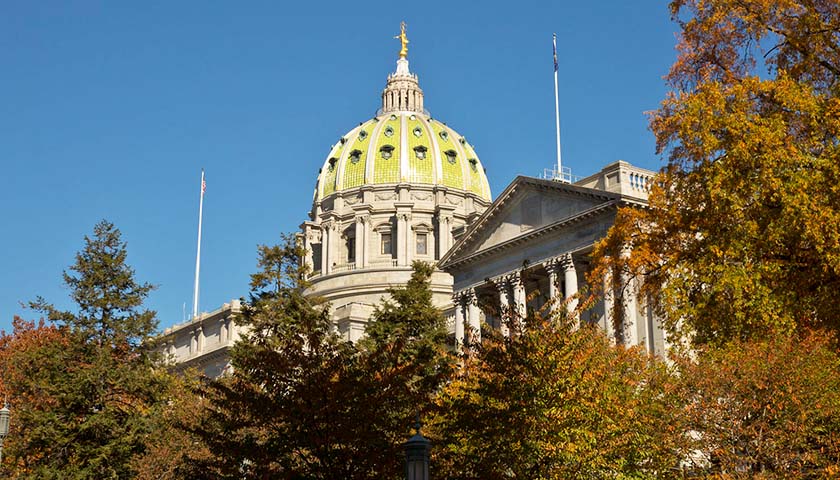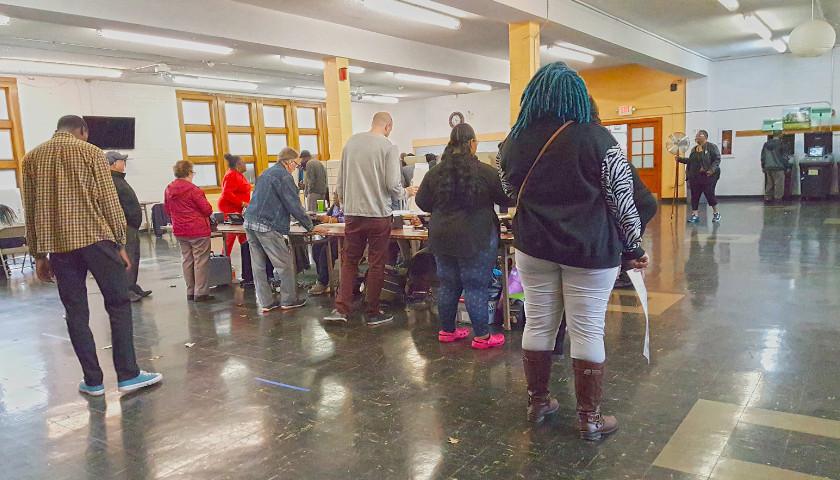Pennsylvania’s House State Government Committee on Wednesday passed a Senate bill to move the state’s presidential primary date and another measure to allow out-of-county poll watchers.
The first of the two bills was sponsored by State Senator John Gordner (R-Bloomsburg) and passed his chamber unanimously last December. And yet only two of the House panel’s 10 Democrats, State Senators Kristine Howard (D-Malvern) and Ben Sanchez (D-Abington), backed the legislation during Wednesday’s vote.
Gordner and many of his colleagues lament that both the Republican and Democratic nomination contests typically get determined before Pennsylvania voters have any say. Currently, the Keystone State’s presidential primaries occur on the fourth Tuesday in April. After 2008, the Republican and Democratic National Committees assented to a primary schedule in which Iowa, New Hampshire, Nevada, and South Carolina would hold their respective primaries and caucuses in February; all others would take place between March and early June.
Starting in 2024, Gordner’s bill would instead place Pennsylvania’s presidential nomination vote on the third Tuesday of March – the same day as the Arizona, Florida, and Illinois primaries – keeping the date within the national party rules. His measure would have no effect on the scheduling of primaries in other years.
The legislation to allow Pennsylvania voters to get certified as poll watchers in counties other than their own has been more controversial; it received only one Democratic vote when it passed the State Senate two weeks ago and got no Democratic support in Wednesday’s House committee vote.
Poll watchers – volunteers appointed by candidates and political parties – may currently only observe voting precincts in their respective counties. The commonwealth allows watchers to “make good-faith challenges” to a voter’s residence, identity or voting eligibility.
The bill changing the in-county requirement also permits watchers to view absentee ballot pre-canvassing from “a distance of six feet or less.” Republicans have complained that they were not allowed to closely watch the canvassing process in Philadelphia in November 2020 and have pushed for a change in the law to address this.
Another component of the bill, which is sponsored by State Sen. Doug Mastriano (R-Gettysburg), hikes the potential fine for impeding poll watchers from performing their responsibilities from $1,000 to $5,000 and lengthens the maximum prison sentence for such violations from one year to two.
“There’s no reason to have poll watchers if they aren’t able to be in the line of sight and clearly see what’s happening,” State Rep. Paul Schemel (R-Waynesboro) said in support of the bill.
Democrats objected particularly to a provision of Mastriano’s legislation that would increase the number of candidate-appointed watchers at a precinct from two to three. Political parties are themselves able to appoint three watchers per precinct; thus a total of six watchers at a single precinct could have the same party affiliation if the measure becomes law.
“We’re intimidating enough poll workers that they’re not going to be there,” State Rep. Joe Webster (D-Collegeville) said before voting against the measure.
In response, State Government Committee Chair Seth Grove (R-York) said oftentimes “you’re lucky to get one” poll watcher of a party stationed at a polling place.
– – –
Bradley Vasoli is managing editor of The Pennsylvania Daily Star. Follow Brad on Twitter at @BVasoli. Email tips to [email protected].
Photo “Pennsylvania State Capitol” by Governor Tom Wolf CC BY 2.0.





